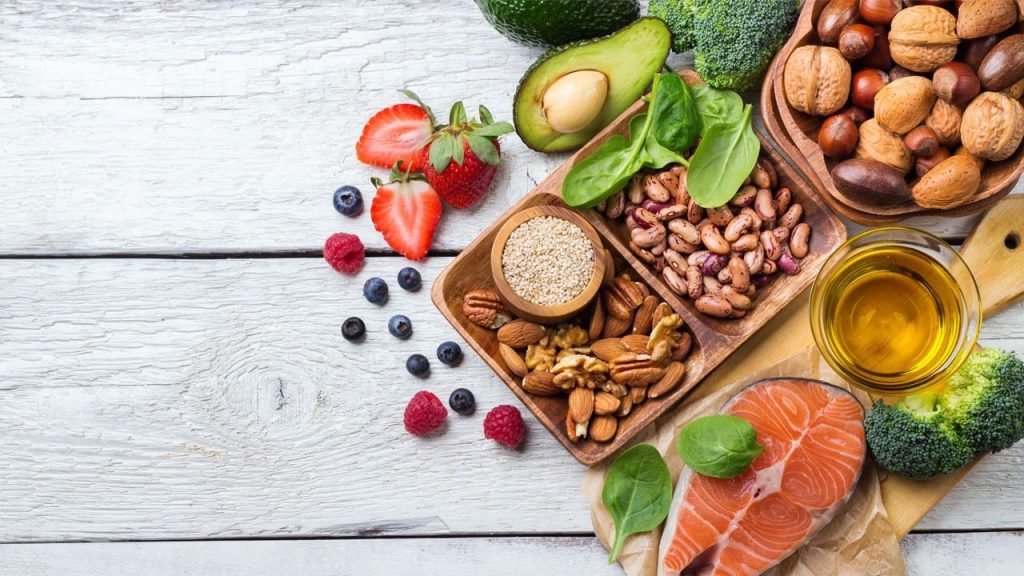There’s a common saying: you are what you eat. This holds especially true for your dental health. For many, maintaining healthy teeth and gums is a top priority, as a bright smile not only boosts confidence but also reflects overall wellness. While certain foods can strengthen your teeth and gums, others may contribute to tooth decay and gum disease.
Many people regularly visit their dentist for professional care, but you can also significantly improve your oral health through your diet. By incorporating teeth-friendly foods and minimizing the intake of harmful ones, you can support your dental health every day.
Below, Dr. Frank Roach, a trusted dentist, shares the top 5 best foods for your teeth and the 5 worst foods to avoid for optimal oral health.
Best Foods for Your Teeth:
- Fruits and Vegetables Rich in Fiber: According to the American Dental Association (ADA), high-fiber fruits and vegetables such as apples, carrots, and celery help keep your gums and teeth clean. These fibrous foods stimulate saliva production, which helps neutralize harmful acids, wash away food particles, and strengthen tooth enamel.
Saliva plays a crucial role in dental health by reducing the effects of acids and enzymes produced by bacteria after consuming sugary or starchy foods. It also contains calcium and phosphate, which help restore minerals to areas of your teeth that have been weakened.
- Dairy Products: Dairy items like milk, cheese, and yogurt are excellent sources of calcium and phosphates. These minerals support the remineralization of tooth enamel and help maintain strong teeth. Cheese particularly has the added benefit of neutralizing acids in the mouth.
- Green and Black Tea: Both green and black teas contain polyphenols that inhibit the growth of plaque-causing bacteria. Drinking these teas can reduce bacterial activity and acid production, protecting your teeth from decay.
- Sugarless Chewing Gum: Chewing sugar-free gum stimulates saliva flow, which helps wash away food debris and acids. It’s an effective, convenient way to keep your mouth clean, especially when brushing isn’t immediately possible.
- Foods Containing Fluoride: Fluoride strengthens tooth enamel and makes teeth more resistant to decay. Besides fluoridated drinking water, certain processed foods including powdered juices (with low sugar), some dehydrated soups, poultry products, powdered cereals, and seafood contain fluoride that aids oral health.
Learn more about maintaining healthy teeth with a nutrition-focused approach: 8 Foods to Eat During Pregnancy
Worst Foods for Your Teeth:
- Sticky Candies and Sweets: If you enjoy sweets, opt for those that clear out of your mouth quickly, such as chocolate. Avoid sticky candies like caramels, toffees, lollipops, and cough drops, as they can cling to teeth and feed harmful bacteria, increasing the risk of cavities.
- Starchy Foods That Get Trapped Between Teeth: Foods such as soft breads, popcorn, and potato chips can easily lodge between teeth, providing a breeding ground for bacteria that produce acids harmful to enamel.
- Carbonated Soft Drinks: These beverages are often high in sugar and contain phosphoric and citric acids, which can erode tooth enamel and lead to tooth sensitivity and cavities. They are a leading source of added sugar, especially among children and teenagers.
- Substances That Dry Out Your Mouth: Alcohol and certain medications reduce saliva flow, which is essential for neutralizing acids and protecting teeth. If medication causes dry mouth, consult your dentist about fluoride rinses or gels to help protect your teeth.
- Caffeine: Coffee and other caffeinated drinks can stain teeth significantly. Studies show that coffee stains are more resistant to brushing than other stains, making teeth look dull and sticky—creating a surface conducive to plaque buildup.
Besides monitoring your diet, maintain good oral hygiene by brushing your teeth twice daily and drinking plenty of water to support saliva production and wash away harmful bacteria.
Frequently Asked Questions (FAQs)
1. How does saliva protect my teeth?
Saliva helps neutralize harmful acids produced by bacteria, washes away food particles, and contains minerals like calcium and phosphate that aid in repairing weakened tooth enamel.
2. Are all dairy products equally good for teeth?
Most dairy products are beneficial due to their high calcium and phosphate content, but sugar-added dairy products like flavored yogurts can contribute to tooth decay. Always choose low-sugar or plain dairy options.
3. Can drinking tea stain my teeth?
While tea contains compounds that can stain teeth over time, its benefits against tooth decay usually outweigh this downside. To minimize staining, drink tea in moderation and maintain regular brushing and dental cleanings.
4. Is sugarless gum really effective for dental health?
Yes, sugar-free gum stimulates saliva production, which helps clean teeth and neutralize acids. It’s particularly useful when brushing isn’t possible after meals.
5. What are the best practices to reduce teeth staining from coffee or caffeine?
Limit coffee intake, rinse your mouth with water after drinking, use a straw to reduce contact with teeth, and maintain good oral hygiene, including regular dental checkups and cleanings.


